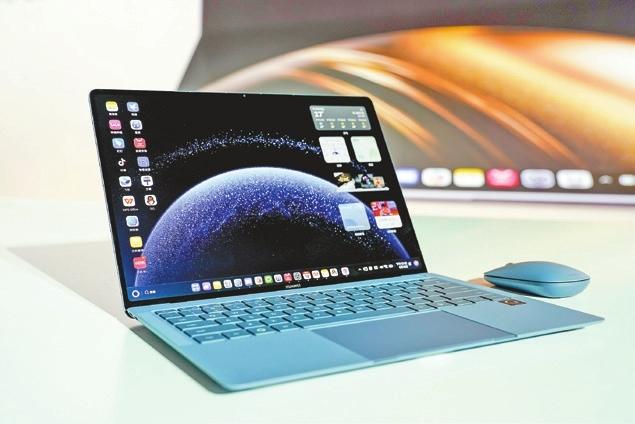
SHENZHEN-BASED tech giant Huawei unveiled two laptops powered by HarmonyOS yesterday, marking the debut of its self-developed operating system on personal computers (PCs). The launch of the Huawei MateBook Pro and MateBook Fold Ultimate Design signals the company’s push to expand HarmonyOS beyond smartphones and tablets into the PC market, which has long been dominated by Microsoft’s Windows and Apple’s macOS. At the launch event in Chengdu, the capital of Southwest China’s Sichuan Province, Huawei’s executive director Yu Chengdong said that the HarmonyOS-powered computers integrate software, hardware, devices, and cloud services to fundamentally reshape the PC experience. Huawei stated that HarmonyOS is the first Chinese operating system to unify mobile and desktop ecosystems. It enables developers to deploy applications across different devices using a single toolset, thereby reducing technical barriers and development costs. HarmonyOS, also known as Hongmeng in Chinese, is an open-source operating system designed for a wide range of devices and scenarios. Since its initial launch in 2019, it has been applied across smartphones, tablets, wearables, smart home appliances, and new energy vehicles. Yang Zhusong, an associate researcher at Tsinghua University, said that the launch of PCs powered by HarmonyOS represents a significant milestone in China’s efforts to reduce its overreliance on foreign core technologies. Yang anticipates that HarmonyOS will emerge as the world’s third major PC operating system in the foreseeable future. HarmonyOS-powered computers now support connectivity with over 1,100 external devices. Its application ecosystem spans a wide range of scenarios, including office work, finance and investment, entertainment, education, and gaming. More than 1,000 ecosystem-compatible applications are already available, and the number is expected to surpass 2,000 by year-end, Huawei said. (Xinhua) | 
